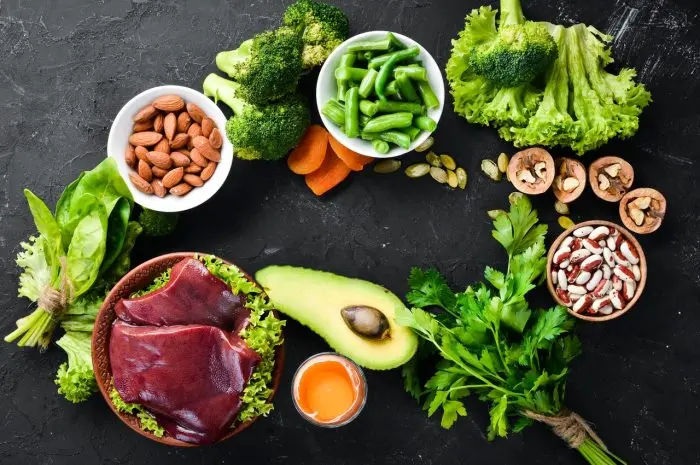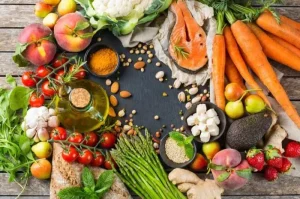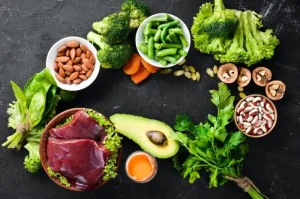Anemia is a common medical condition characterized by a deficiency in red blood cells or a lack of hemoglobin, the oxygen-carrying protein in the blood. It can lead to fatigue, weakness, pale skin, and a range of other symptoms that can significantly impact one’s quality of life.
While anemia can have various causes, including genetic factors and underlying health conditions, nutrition plays a crucial role in both prevention and management. In this article, we will explore the importance of a healthy diet in facing anemia, including dietary choices and lifestyle habits that can help combat this condition effectively.
Understanding Anemia
Anemia can manifest in different forms, with iron-deficiency anemia being the most prevalent type. Other types include vitamin-deficiency anemia (such as B12 or folate deficiency anemia) and anemia of chronic disease, which can be related to underlying conditions like chronic inflammation or kidney disease.
Key Symptoms of Anemia:
- Fatigue and weakness
- Pale or yellowish skin
- Shortness of breath
- Dizziness or lightheadedness
- Cold hands and feet
- Rapid heartbeat
- Headaches and difficulty concentrating
- Brittle nails
- Pale or inflamed tongue
Dietary Strategies for Anemia Management
Iron-Rich Foods
Iron is essential for the production of hemoglobin in red blood cells. Including iron-rich foods in your diet can help combat anemia effectively. Good sources of dietary iron include:
- Lean red meat (such as beef and lamb)
- Poultry (like chicken and turkey)
- Fish (especially salmon and tuna)
- Beans and lentils
- Tofu and tempeh
- Nuts and seeds (particularly pumpkin seeds)
- Fortified cereals and whole grains
- Dark leafy greens (such as spinach and kale)
Vitamin C-Rich Foods
Vitamin C enhances iron absorption from plant-based sources, making it a valuable addition to your diet if you’re following a vegetarian or vegan lifestyle. Incorporate vitamin C-rich foods like citrus fruits, strawberries, bell peppers, and broccoli into your meals.
Fortified Foods
Many foods are fortified with essential nutrients, including iron and vitamin B12. Check food labels for fortified cereals, plant-based milk alternatives, and nutritional yeast, which can be particularly helpful for individuals with dietary restrictions.
Animal Products
If you consume animal products, lean meats, poultry, fish, and dairy products are excellent sources of heme iron, the type of iron that is most readily absorbed by the body. Combining these foods with non-heme iron sources (like beans and lentils) can optimize iron absorption.
Leafy Greens
Dark leafy greens, such as spinach, kale, and collard greens, are rich in both iron and folate, making them valuable additions to an anemia-fighting diet.
Vitamin B12
Vitamin B12 is crucial for red blood cell formation and can be found in animal products like meat, fish, eggs, and dairy. If you follow a vegetarian or vegan diet, consider taking B12 supplements or consuming B12-fortified foods to prevent deficiency.
Folate-Rich Foods
Folate (or vitamin B9) is essential for red blood cell production and can be obtained from foods like lentils, chickpeas, asparagus, and fortified grains.
Lifestyle Habits to Combat Anemia
Balanced Diet
Maintaining a well-balanced diet that includes a variety of nutrient-rich foods is essential for overall health and can help prevent nutritional deficiencies that lead to anemia.
Regular Blood Tests
If you suspect anemia or have a history of anemia, consult a healthcare provider for blood tests to confirm the diagnosis and determine the underlying cause. This will guide your treatment plan and dietary adjustments.
Cooking Techniques
To maximize iron absorption from plant-based sources, cook foods in cast iron pots and pans and pair them with vitamin C-rich foods, like citrus or bell peppers.
Avoid Excessive Tea and Coffee
Substances in tea and coffee, such as tannins and caffeine, can inhibit iron absorption. Limit your consumption of these beverages, especially during or after meals.
Limit Calcium Supplements
Calcium supplements can interfere with iron absorption. If you take calcium supplements, consider taking them between meals to minimize any potential impact on iron absorption.
Hydration
Proper hydration is essential for overall health and can help alleviate some symptoms of anemia, such as fatigue and dizziness.
Conclusion
Anemia is a manageable condition, and a well-balanced diet can be a powerful tool in facing and overcoming it. By incorporating iron-rich foods, vitamin C, and other essential nutrients into your daily meals, you can support healthy red blood cell production and reduce the symptoms associated with anemia.
If you suspect you have anemia or have been diagnosed with it, consult with a healthcare provider or registered dietitian to develop a personalized dietary and treatment plan tailored to your specific needs. With the right approach, you can improve your energy levels, overall health, and quality of life while managing anemia effectively.









